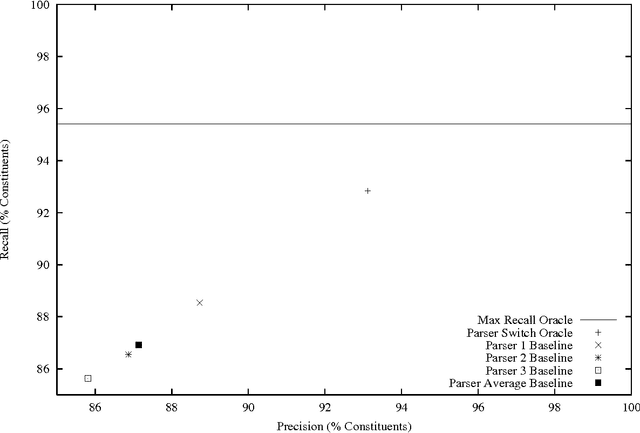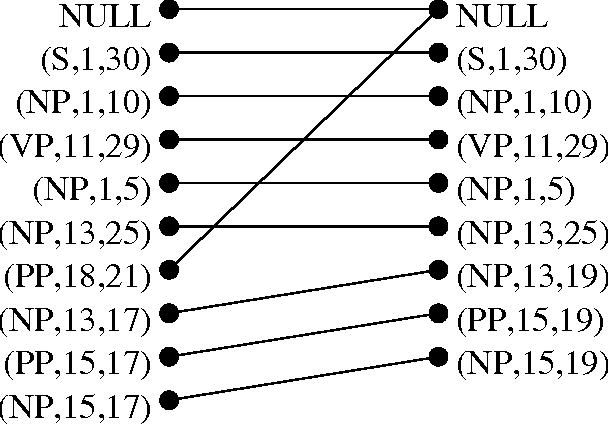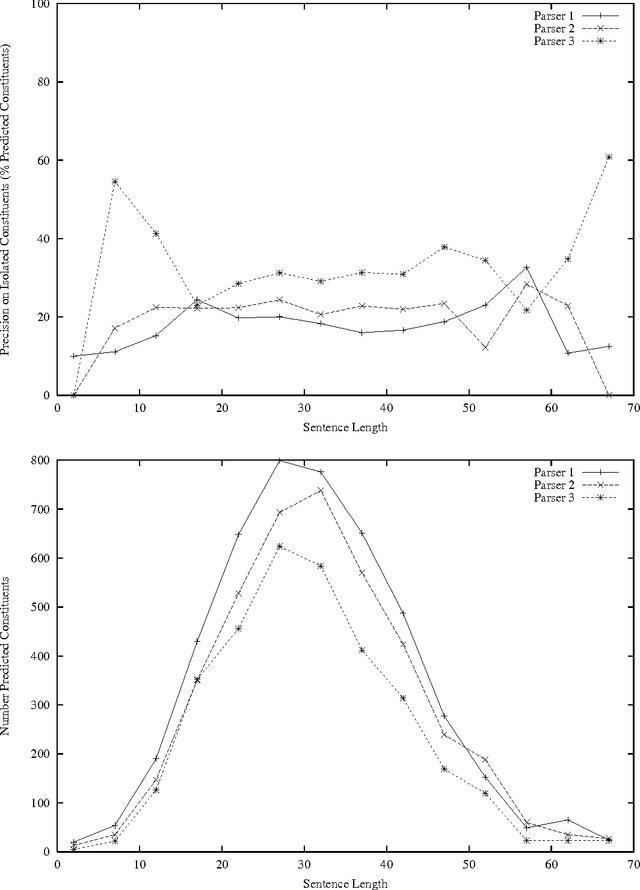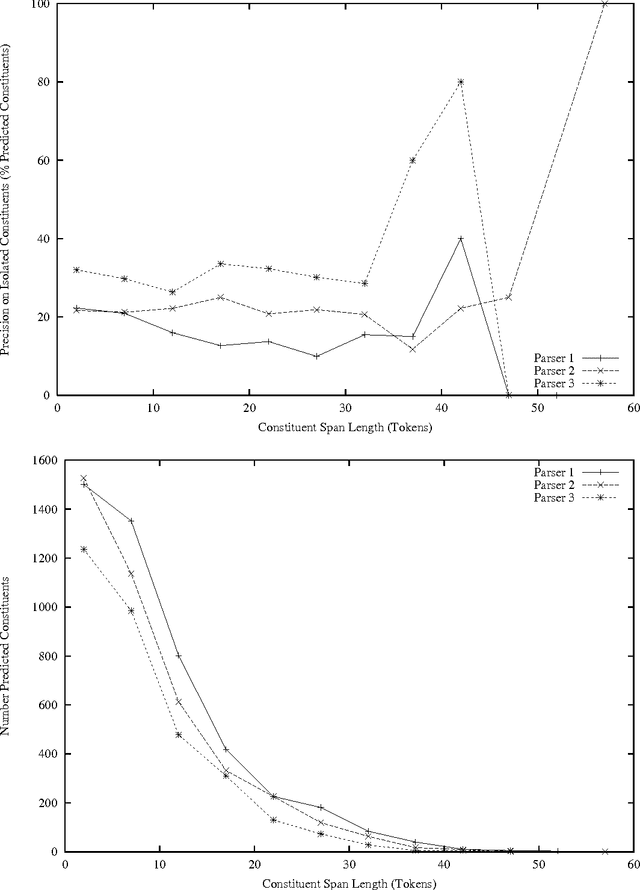Exploiting Diversity for Natural Language Parsing
Paper and Code
Jun 05, 2000



The popularity of applying machine learning methods to computational linguistics problems has produced a large supply of trainable natural language processing systems. Most problems of interest have an array of off-the-shelf products or downloadable code implementing solutions using various techniques. Where these solutions are developed independently, it is observed that their errors tend to be independently distributed. This thesis is concerned with approaches for capitalizing on this situation in a sample problem domain, Penn Treebank-style parsing. The machine learning community provides techniques for combining outputs of classifiers, but parser output is more structured and interdependent than classifications. To address this discrepancy, two novel strategies for combining parsers are used: learning to control a switch between parsers and constructing a hybrid parse from multiple parsers' outputs. Off-the-shelf parsers are not developed with an intention to perform well in a collaborative ensemble. Two techniques are presented for producing an ensemble of parsers that collaborate. All of the ensemble members are created using the same underlying parser induction algorithm, and the method for producing complementary parsers is only loosely constrained by that chosen algorithm.
 Add to Chrome
Add to Chrome Add to Firefox
Add to Firefox Add to Edge
Add to Edge